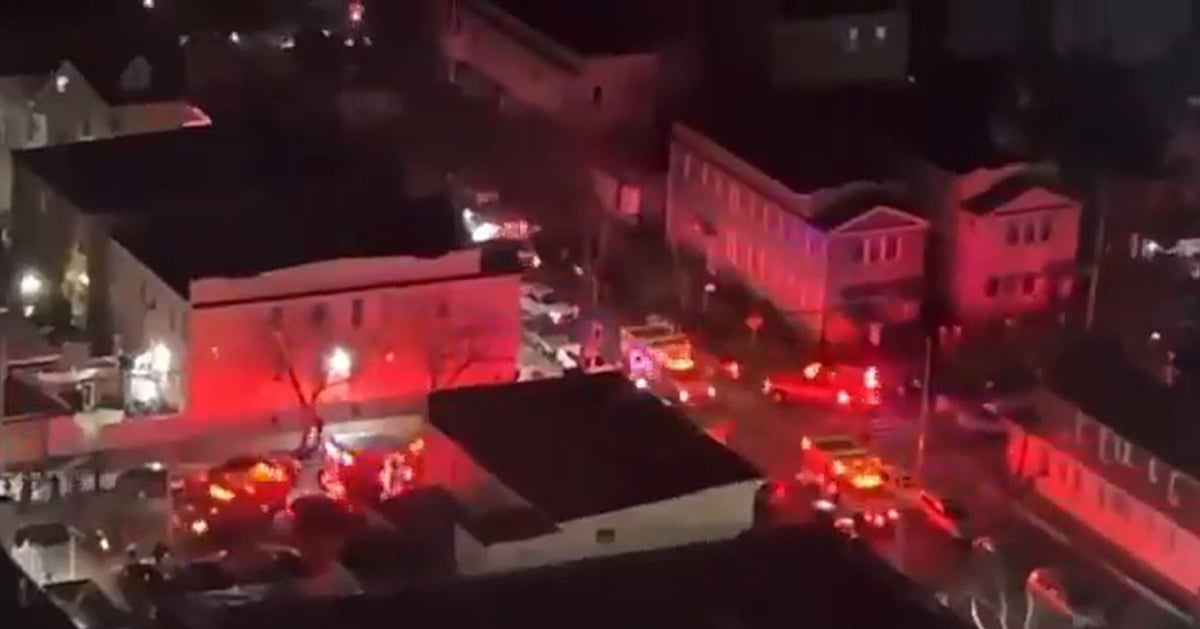 |
|
The recent mass shooting outside the Amazura nightclub in Jamaica, Queens, serves as a stark reminder of the pervasive issue of gun violence in urban environments. The incident, which left ten individuals injured, unfolded on Wednesday night just before 11:20 pm. While thankfully none of the victims sustained critical injuries and are expected to recover, the event highlights the fragility of life and the constant threat of violence that communities face. The sheer scale of the incident, involving multiple victims and requiring a significant emergency response, underscores the need for comprehensive strategies to address the root causes of gun violence. The swift response from law enforcement, transporting the victims to Long Island Jewish Hospital and Cohen's Children Medical Center, reflects the preparedness of emergency services in the face of such crises. However, the incident itself necessitates a deeper examination into the factors contributing to such events, ranging from accessibility to firearms to underlying societal issues.
The Amazura nightclub, with its capacity to accommodate up to 4,000 people, often hosts DJs and live events, making it a popular venue for entertainment. The location's popularity, coupled with the late-night incident, raises questions about security measures implemented at the venue and the broader challenges of ensuring public safety in crowded spaces. Were there sufficient security personnel present? Were metal detectors or other security checks in place? These are crucial aspects that must be scrutinized in the aftermath of the incident. Furthermore, the incident raises broader concerns about the availability of firearms and the ease with which they can be obtained, ultimately contributing to the escalating incidents of gun violence across various communities. Investigations into the origins of the firearms used in the shooting, and the perpetrator's motivations, are essential steps to preventing future tragedies.
The mass shooting in Queens follows another devastating attack in New Orleans, which resulted in 15 fatalities. This juxtaposition underscores the alarming frequency of mass shootings in the United States and highlights the urgent need for comprehensive gun control measures. The juxtaposition of these two events, separated geographically yet united by their horrific nature, serves as a powerful indictment of the current state of gun violence in the nation. It emphasizes the need for collaborative efforts among policymakers, law enforcement agencies, community leaders, and mental health professionals to address this complex problem. The focus should not only be on immediate responses to these incidents but also on proactive measures to prevent future occurrences. This requires addressing underlying issues such as mental health support, poverty, and community engagement, all of which play a role in contributing to the societal climate that fosters such acts of violence. The investigation into the Queens nightclub shooting should strive not only to find justice for the victims but also to uncover systemic issues that contribute to such events.
The use of citizen journalism platforms, such as the Citizen App, which provided footage of the immediate aftermath, highlights the evolving role of technology in disseminating information and documenting such incidents. While such platforms can offer real-time updates and visual evidence, it's crucial to verify the accuracy of the information shared and to ensure that the dissemination of such content does not further traumatize victims or compromise the ongoing investigation. Moreover, the spread of such images on social media necessitates careful consideration of their potential impact on the mental well-being of the public. In addition to investigating the incident, addressing the broader societal factors that contribute to gun violence is paramount. This includes examining issues like access to mental health services, economic inequality, and the societal normalization of violence. A multi-faceted approach, encompassing legislative action, community programs, and a cultural shift away from violence, is necessary to effectively tackle this pervasive problem.
The long-term implications of this incident extend beyond the immediate physical injuries sustained by the victims. The psychological trauma inflicted upon them and witnesses alike will require extensive support and care. The community itself will grapple with the fear and uncertainty following such a violent event. The need for mental health support extends not only to the immediate victims and their families but also to the first responders and the community at large, all of whom have been impacted by the traumatic events. Long-term recovery efforts must prioritize providing comprehensive mental health services, promoting community resilience, and fostering a sense of collective healing and security. This requires long-term community investment, emphasizing prevention and intervention strategies to ensure that such incidents do not become normalized within the community. The collective response, beyond immediate medical care and law enforcement action, must address the emotional and social scars left behind by the violence.
Source: Ten injured in mass shooting outside nightclub in New York City
